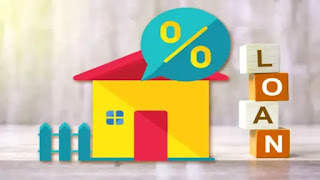Banks attract more home loan customers during this festival
According to the recent interest rate reduction effected by banks, they appear to be demonstrating a specific preference for growing their house loans within retail loans over the ongoing festive season.
Most banks have announced interest rate reductions on home loans, which are currently at an all-time low, while interest rates on other loans, such as auto loans and unsecured personal loans, have remained mostly steady.
During the current festive season, Kotak Mahindra Bank (from 6.65 percent to 6.50 percent), State Bank of India (from 6.80 percent to 6.70 percent), Bank of Baroda (from 6.75 percent to 6.50 percent), Punjab National Bank (from 7.10 percent to 6.60 percent on home loans over 50 lakh), and Union Bank of India have all announced home loan rate cuts (from 6.80 per cent to 6.40 per cent).
The banks would add credit spread to the aforementioned rates depending on a prospective borrower's credit score.
This reduction in house loan rates comes as industry analysts predict that increased raw material prices passed on to customers in recent months, as well as rising fuel prices, may be lowering demand for vehicles (and thus for loans to buy them).
Bankers are also concerned about the risk of stress in the unsecured personal loan portfolio.
Furthermore, banks no longer have the advantage they had over gold loan companies (GLCs) last year (between August 6, 2020 and March 31, 2021), when the Reserve Bank of India (RBI) allowed the former to lend up to 90% of the value of gold ornaments and jewellery to help households, entrepreneurs, and small businesses cope with the economic impact of the Covid-19 pandemic.
Now that a fair playing field has been established (both banks and GLCs can make loans up to 75% of the value of gold ornaments and jewellery), savvy GLCs can reclaim consumers who were previously lost to banks.
Low risks
According to banking expert V Viswanathan, banks consider housing loans to be the best bet for growing their retail loan portfolio because of the relatively low risk of default, lower risk weights (the minimum capital required to mitigate default risk has been reduced until March 31, 2022) and availability of strong collateral.
According to the monetary policy report, in August 2021, the spread – weighted average lending rate (WALR) over the policy repo rate – charged by domestic banks in respect of new rupee loans linked to the policy repo rate was the lowest in the case of housing loans and the highest in the case of other personal loans, in line with their risk profiles.
In the case of home loans tied to an external benchmark, the WALR spread over the repo rate for domestic banks was 3.19 percent in August 2021. In the case of vehicle loans and other personal loans, the aforementioned spread was 3.60 percent and 4.98 percent, respectively.
The repo rate is the rate at which banks borrow money from the RBI to bridge short-term liquidity gaps. At the moment, this rate is at 4%.
Conclusion
There's no need to be discouraged if your personal loan application is turned down. To boost your chances of loan approval, simply work on improving your credit report and following the methods outlined above. Once you've completed this checklist, you're ready to submit your personal loan application.To find about the best pricing and deals, call our toll-free number +91-9477079053. They'll help you in every way they can. Please contact me at Best Home Loan In India if you have any more.



Comments
Post a Comment